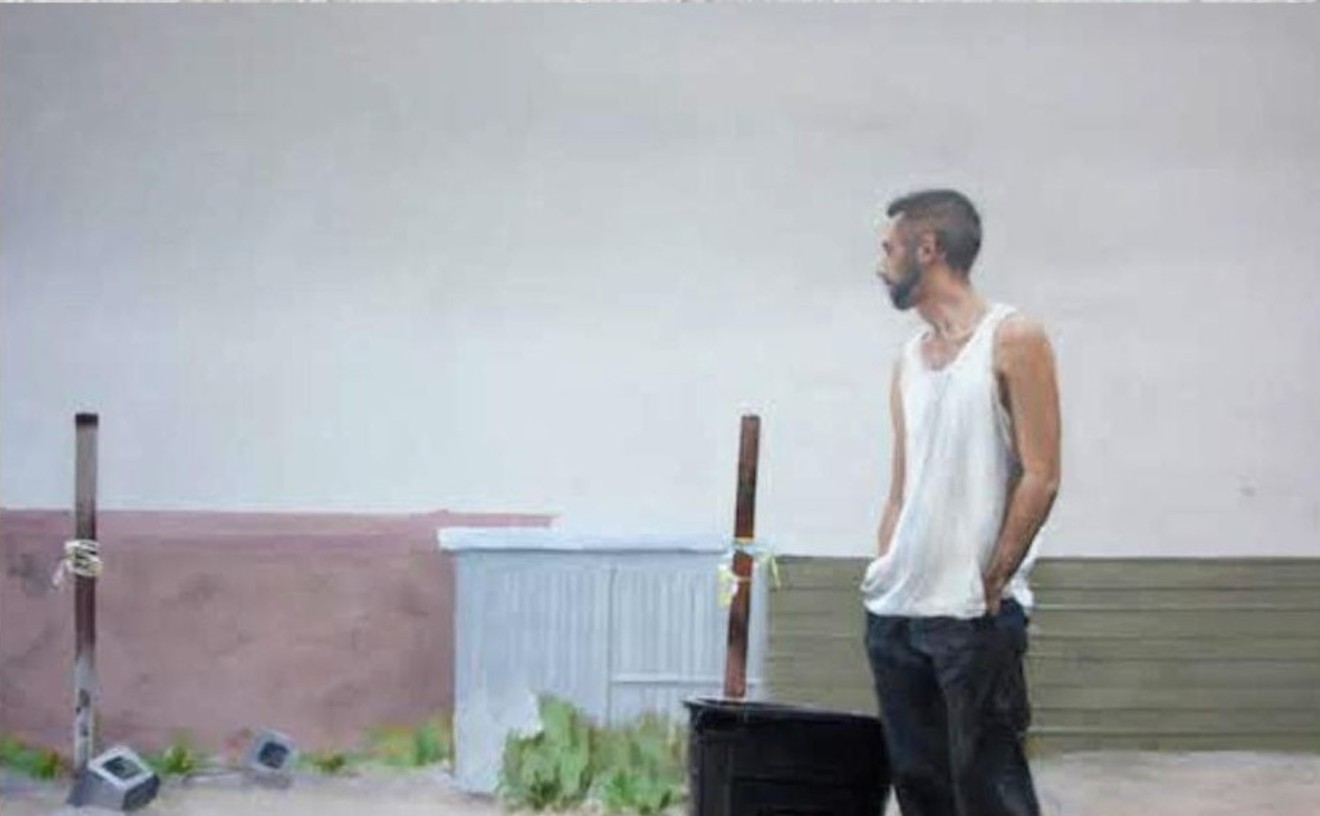Originally written for the legendary Negro Ensemble Company in 1971, The Sty of the Blind Pig was hailed by Time as one of the year's best. But I found Dean's comic drama unfocused and often indecisive, and its conclusion left me baffled about crucial questions of identity, the death of one character, and the fate of another. I'm faulting Paul Carter Harrison's listless direction and Dean's chatty script, which, 30-odd years after its debut, is more a testimony to the paucity of plays written by and for African Americans than a compelling reflection on anyone's life.
Set in Chicago's south side just before the civil rights movement, the story is mostly Alberta's. She's an unmarried, thirtyish spinster who lives in a slum with her mother, Weedy (Joyce Gittoes), a bossy conservative who finds solace in her religion. Weedy's brother, Doc (Mike Traylor), is a drinker and a gambler and the biggest blight on her life, until a wandering street singer named Blind Jordan (Andr Lee Ellis) turns up and begins romancing Alberta. Weedy disapproves of the romance, and the tension between mother and daughter builds to an unsurprising climax of sorts; along the way, Alberta's emotional and sexual frustration burst out in a stirring monologue that is the play's high point.
Harrison was a member of the Negro Ensemble Company when this play bowed in New York, and he's directed the show before for other companies -- perhaps with the same slow, meandering pace as this production, which wanders all over Phoenix College's massive stage. Harrison de-emphasizes the play's religious allegory and focuses instead on the people who populate this sleepy morality tale. It's the director's wisest move -- possibly his only truly smart choice here -- because the actors he's selected to bring these people to life are tremendous.
As always, Joyce Gittoes is extraordinary. She's made a career of playing frustrated, crotchety old women, and invariably finds a touching, hilarious variation on that theme. Her generous portrayal of Weedy brings a flinty intelligence to a person who's probably half as sharp as written, and her clever underplaying gives us a woman of commanding strength and pride. The always reliable Mike Traylor knows how to turn each of his oily exclamations into a perfectly timed attack on any other character he happens to be addressing, and turns even the smallest gesture into a comic statement. And while Andr Lee Ellis never convinced me that he was blind, he brought a certain calm dignity to the troubled title character.
Iris Huey is in fine company, but it's she who provides the evening's tour de force. Her Alberta may well be uncertain and unstable, but she's also a quick-witted hopeful who's drawn to her own fate in spite of herself. Huey delivers an amazing monologue in Act Two that builds into a writhing fit of old-time, Southern Baptist testifying. It's an astonishing passage in an otherwise undynamic play, one that's worth seeing mostly for the stunning performances turned in by a fine cast.
E-mail [email protected]










